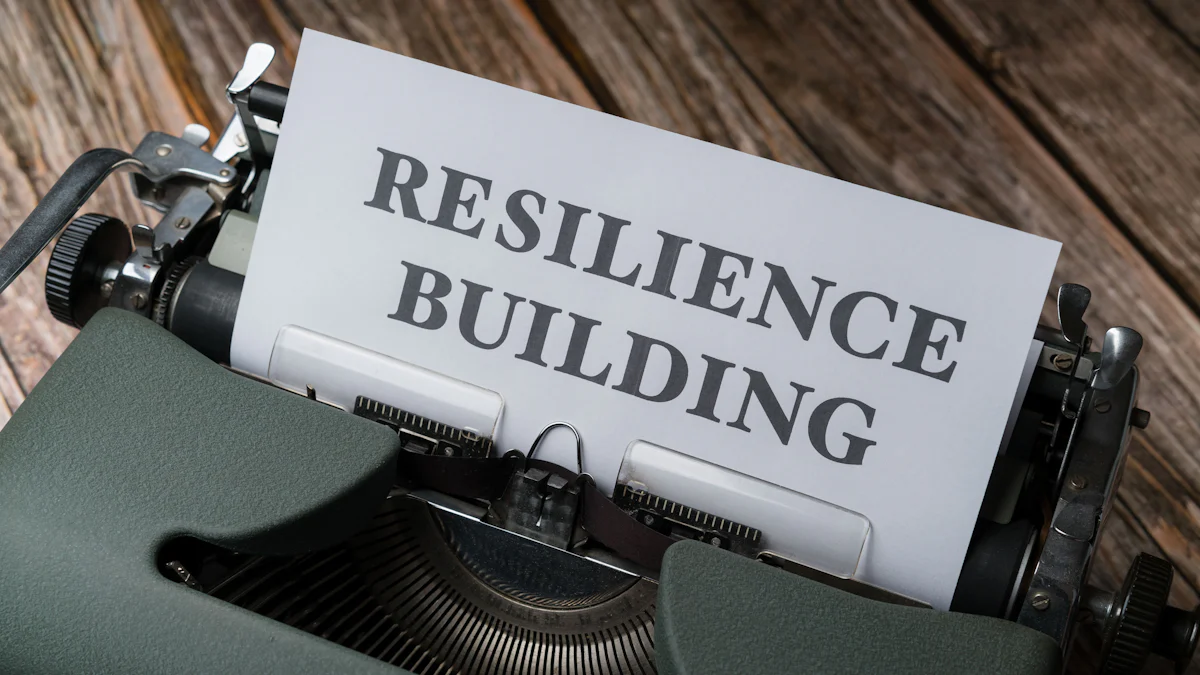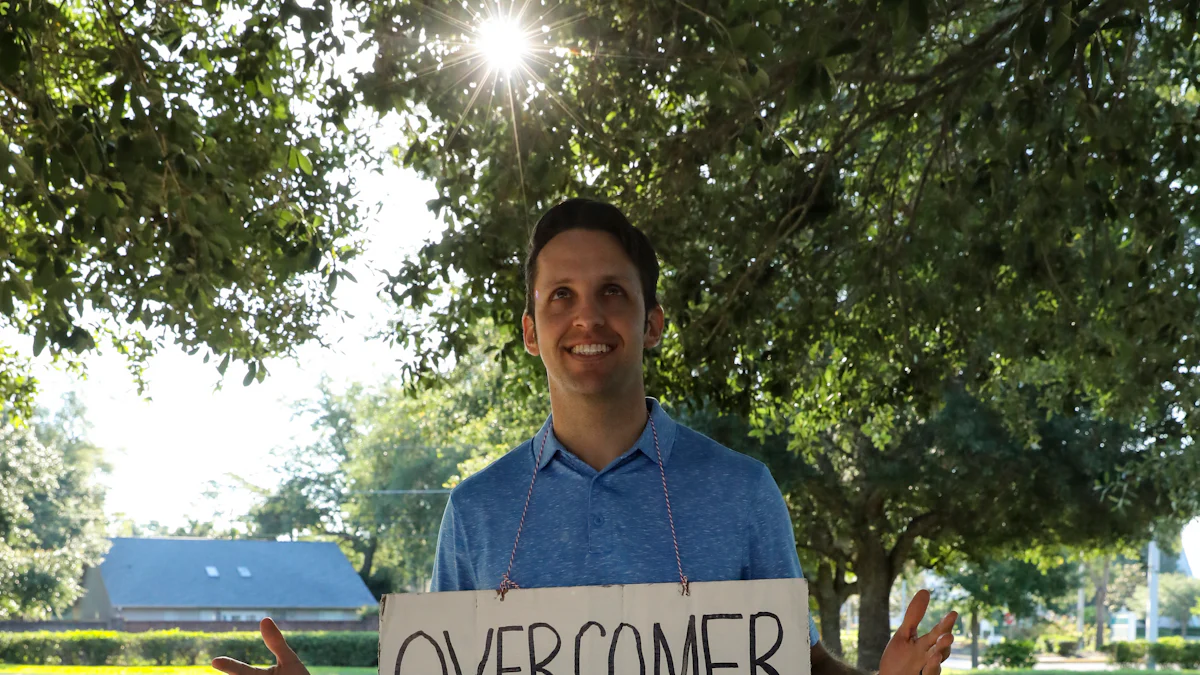How to Build Student Resilience and Overcome Setbacks

Student resilience is a crucial characteristic for students. It enables them to confront challenges with resolve. Young individuals striving for academic excellence must understand the significance of resilience. They encounter various obstacles, ranging from academic stress to personal issues, which put their resilience to the test. At Suited Tutor, we recognize the significance of fostering student resilience. This equips them to thrive even in the face of adversity.
Understanding Student Resilience
What is Resilience?
Resilience means staying strong when facing problems. It helps students bounce back and become stronger. This trait is important for both school and personal growth.
Definition and key characteristics
Academic Resilience is about handling school problems well. It shows students can face challenges and still keep a good attitude about learning. Emotional Resilience is about dealing with feelings and stress in a healthy way.
Importance of resilience in academic and personal growth
Building Resilience in Students is very important for their overall growth. It gives them the tools to overcome problems, helping them believe in themselves. With resilience, students see challenges as chances to grow.
Common Setbacks Students Face
In school, students face many problems that test their strengths:
Academic Setbacks: These include trouble understanding hard topics or getting good grades.
Personal and Social Obstacles: Personal issues or social pressures can hurt their schoolwork.
Mental Health Issues: Dealing with mental health problems can make it hard to focus on studies.
Ways to Build Resilience
Growing a Positive Mindset
Help students set easy goals. This is key to Building Resilience and Managing a positive mindset. Break big goals into small steps. This way, students feel good as they reach each step. It shows them that hard work pays off and helps them take charge of their learning.
Knowing the Positive Mindset
To Emphasise a positive mindset, know that problems are chances to grow. People with this mindset see hard times as ways to learn and get better. This helps students face setbacks with strength and willpower.
Steps to Grow a Positive Mindset
One way to Encourage this mindset is by talking kindly to yourself. Remember, trying hard makes you better, and mistakes help you learn. Also, ask teachers or mentors for feedback to find ways to improve and celebrate your progress.
Creating a Support System
When things are tough, having people who care can help a lot. Being around those who believe in you gives support when facing problems. Family, friends, and mentors are important for building resilience and handling setbacks well.
Why Support Matters
A helpful environment boosts Building Resilience and Managing feelings during hard times. Knowing people care about your success increases confidence and drive. Sharing your troubles with trusted people can give you new ideas to solve problems.
Role of Family, Friends, and Mentors
Family gives love and support, making students feel safe during challenges. Friends offer company and understanding with different views on issues. Mentors guide based on their experiences, motivating students through tough times.
Improving Problem-Solving Skills
Good problem-solving skills help beat obstacles and build resilience. By thinking critically and being creative, students can tackle challenges confidently.
How to Solve Problems Well
When facing problems, break them into smaller parts. Look at each part closely to find solutions. Brainstorm or ask friends for advice to get different ideas on how to solve the problem.
Boosting Critical Thinking and Creativity
To get better at solving problems, think outside the box for new solutions. See unclear situations as chances for creative solving instead of hurdles. By questioning old ways and trying new ideas, students can develop flexible problem-solving skills.
Promoting Self-Care and Well-being
Importance of physical and mental health
Educational Experts stress that physical and mental health are key to student well-being. Taking care of your body and mind is very important for resilience. When you focus on your health, you get the strength to face problems.
Research Experts: "Resiliency means having things that stop bad behaviors from stress, leading to good results in tough times."
Encourage Support Networks: Be around people who make you feel better during hard times.
Encourage students: Make self-care a priority to keep yourself healthy.
Building resilience equips children: With good well-being, students can handle setbacks better.
Practical self-care tips for students
To stay balanced, try these self-care tips:
Prioritise Sleep: Get enough sleep every night to refresh your body and mind.
Stay Active: Do physical activities that give you energy and improve your mood.
Healthy Eating Habits: Eat healthy foods that make you feel good overall.
Mindfulness Practices: Try meditation or deep breathing to lower stress.
Seek Help When Needed: Ask trusted people or professionals for help if needed.
Waxman et al. (2003): "Resilience studies look at changeable factors to create better educational plans.
Overcoming Setbacks

Finding the Main Problem
To overcome setbacks, finding the main problem is very important. By looking at what went wrong, students can learn a lot about their challenges. Asking for feedback from mentors or teachers can give new ideas and ways to move forward.
Ways to Reflect and Analyze
Look at Past Problems: Think about old setbacks to see patterns.
Write in a Journal: Note down thoughts and feelings to understand problems better.
Ask Others: Talk to friends or mentors for different views on tough situations.
Getting Feedback and Help
Talk to Teachers: Discuss problems with teachers for helpful feedback.
Join Mentorships: Get advice from experienced people through mentorship programs.
Peer Groups: Connect with friends who can support and advise you during hard times.
Making Action Plans
Making plans is key to getting past setbacks well. By setting goals and breaking them into small steps, students can start moving towards success again.
Setting Realistic Goals
Clear Goals: Set specific goals that you can reach in a good time.
Prioritize Tasks: Find out which tasks are most important for your goals.
Track Progress: Keep an eye on how you're doing to stay motivated.
Step-by-Step Plans
Break Down Tasks: Split big goals into smaller tasks that are easier to do.
Set Deadlines: Give yourself deadlines for each task to keep moving forward.
Adjust Plans: Be ready to change your plans based on feedback or new situations.
Learning from Failures
Seeing failures as chances to learn is key to building resilience in students. By learning from setbacks, students can become stronger and gain useful skills for future challenges.
Using Failure as a Learning Tool
Learn Lessons: Look at failures closely to find lessons that help you grow.
Build Resilience: See failures as steps toward success, not big obstacles.
Positive Thinking: Focus on what you learned from failures instead of feeling bad about them.
Examples of Successful People
Thomas Edison’s Hard Work: Edison kept trying even after many failures until he made the light bulb work.
Albert Einstein’s Strength: Einstein faced school problems but used setbacks as motivation for great discoveries.
Hardeep Kaur’s Success in Psychology Tools: Kaur overcame research problems through resilience, leading to new ideas in psychology.
How Suited Tutor Helps Build Resilience
What Suited Tutor Offers
Custom Tutoring and Mentoring
Special help to make learning better.
One-on-one support for schoolwork and personal growth.
Success Stories and Feedback
Stories of beating tough problems.
Positive comments showing progress and success.
Awards and Praise
Getting into Top Universities
Paths to famous schools.
Chances for higher learning.
Good Reviews from Students and Parents
Proof of the good effects of tutoring.
Comments showing more confidence and better grades.
Summary: Building resilience helps students face challenges and grow stronger. Seeing setbacks as chances to learn builds strength and determination.
Use Strategies: Encourage positive thinking, get support, improve problem-solving skills, and focus on self-care for resilience.
Suited Tutor's Help: Suited Tutor offers special help that boosts confidence and school success for students with problems.
Get Support: Ask trusted people or professionals for advice and resources to handle setbacks well.
See Also
Boosting Student Voices: Breaking Barriers to Classroom Confidence
Nurturing Student Mindsets: Cultivating Positive Learning
Establishing Trust: A Tutor's Manual for Student Connections
Key Steps for Academic Triumph: Mapping the Path to Success
Mastering Study Hurdles: A Handbook for Students, Parents, and Tutors

